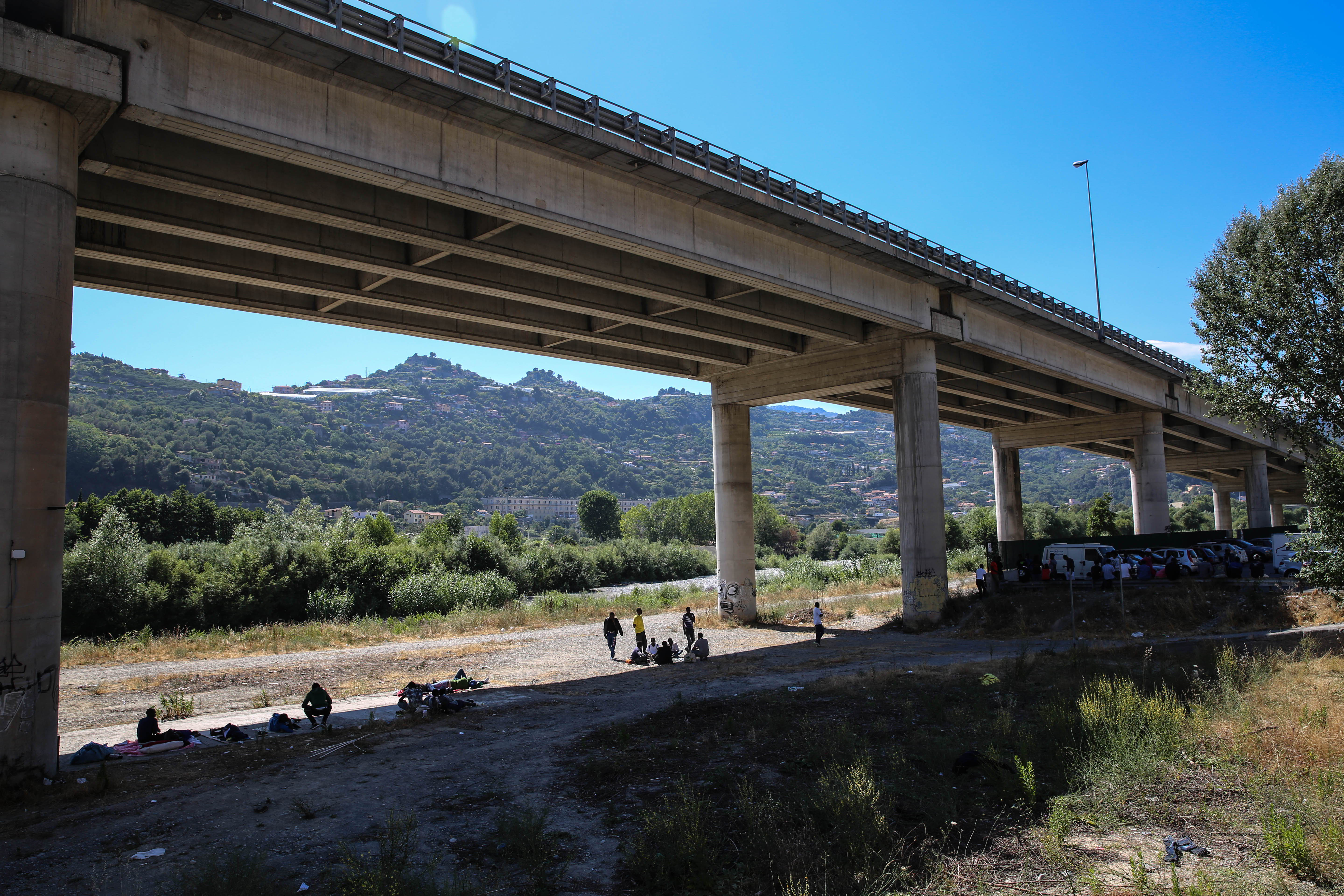French-Italian border: harsh living conditions for migrants in Ventimiglia
Ventimiglia - As a consequence of the ever stricter border policies in place in Europe since the marked sharp increase in migration from 2015, the Italian town of Ventimiglia has turned into the main transit point for migrants arriving in Italy and trying to reach the other EU countries. Since the end of 2016, Médécins Sans Frontières (MSF) has started providing maternal care and first mental support to migrants in transit towards France, stuck at the border and with no access to basic care. With the arrival of the summer season, more and more people have reached the border city, not finding shelter in the existing facilities.
As for other migration routes within the EU (i.e. the Balkan route), the internal border between Italy and France represents a further obstacle in the course through Europe, which for some ones is insurmountable. Migrants arrive in Ventimiglia to then reach France, but the only alternative they have is to cross the border illegally and via dangerous routes: among them there are many pregnant women, entire families and unaccompanied minors.
Border closure, lack of places providing adequate hospitality, and no access to basic facilities and healthcare are additional layers of an exhausting situation migrants in transit have been experiencing for months, or even years. Their prolonged stay at the borders with no acceptable options in Italy affects deeply their physical and mental health. Many try to cross the border on foot - undertaking risky pathways in the mountains or along highway tunnels between France and Italy – only to be pushed back to Italy. Since September 2016, already 12 migrants have died in the attempt of reaching France.
This situation of permanent limbo often entails the repetition of mental health symptoms such as: depression, sense of abandonment, post-traumatic symptoms, apathy, and symptoms of adjustment, anxiety and, in certain cases, psychosomatic problems. For many of them, rough living conditions are compounded by the re-experiencing of traumatic events suffered during the trip, such as physical violence, humiliation, forced imprisonment, and deprivation of basic needs response.
“Dire living conditions make migrants all the more vulnerable. Many of them are fleeing from horrible situations in their countries of origin and have experienced deep trauma along the migration route” explains Federico Saracini, project coordinator for MSF in Ventimiglia. “These are the direct effects of European deterrence policies: people are obliged to put their life at risk and to live in undignified conditions for months”.
Faced with a constant flow of new arrivals since 2014, Italy’s reception system still works in an emergency mode, and fails to meet the needs of the most vulnerable migrants. Lacking an institutional response, since last summer local civil society has set up a temporary shelter at the local parish of Sant Antonio alle Gianchette, where families, children and women are hosted and provided meals. Last month, a total of 444 people (198 women and 246 men), mainly coming from Sudan, Eritrea and other African countries such as Guinea Bissau, Ethiopia, Ivory Coast and Tchad were provided shelter at Le Gianchette. Among them are also very young children, like 2-month old Raheek from Sudan who crossed the Sahara and the Central Mediterranean Sea with her parents. They arrived at the parish after a long journey through Italy. They are fearful of the uncertain future ahead of them.
MSF is providing maternal health care services, mental health support and medical consultations as well as making food and non-food donations. MSF is also providing local volunteers doctors with cultural mediation. 1, 860 healthcare consultations have been provided since the beginning of the year. In August 2016, the Prefecture opened a temporary camp just out of the city where only single men were allowed. Since last month, unaccompanied minors are allowed in too. However, between 150 and 300 people continue to sleep along the river bank of the Roya, without access to any basic service.




